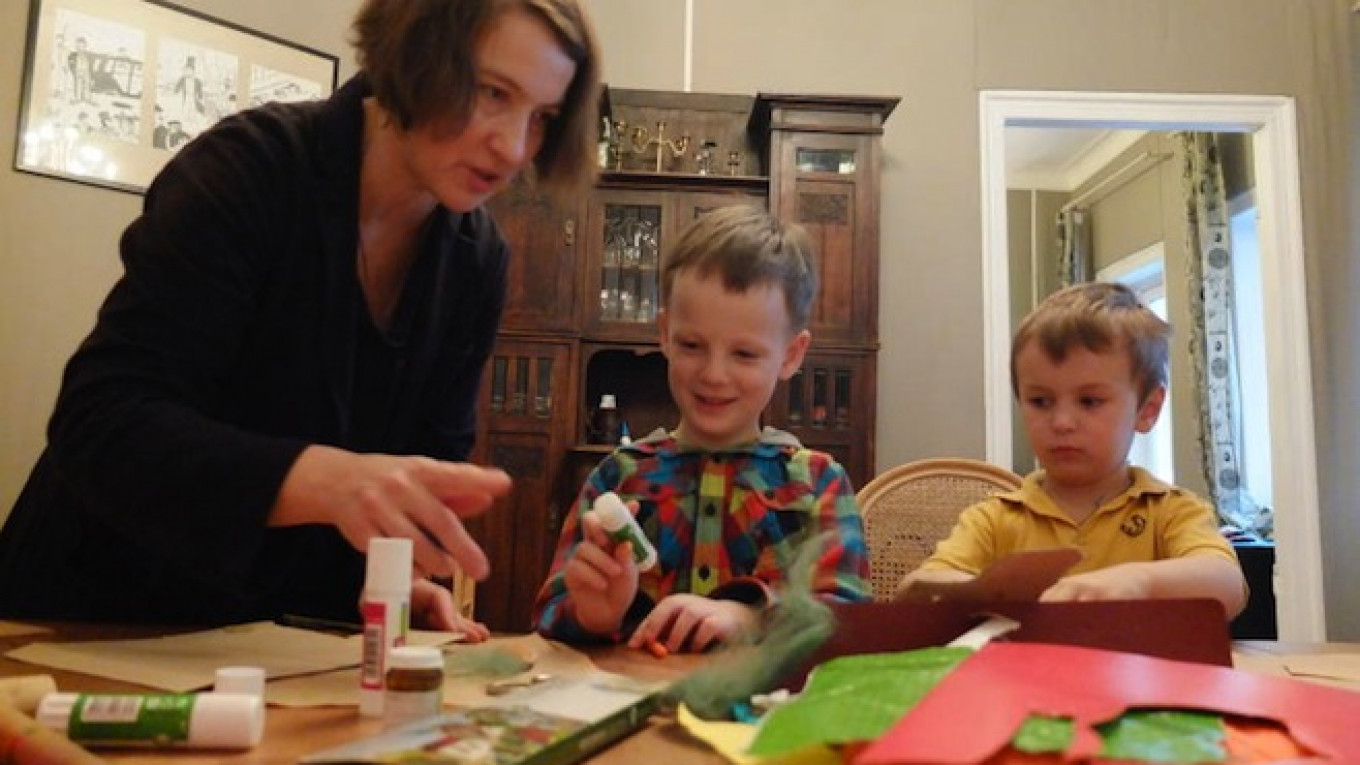Human Rights Watch (HRW) issued a damning report this week condemning the treatment of disabled children in Russia's orphanages, alleging abuse and neglect.
Nearly 30 percent of Russian children with disabilities live in state-run orphanages, though most of them have at least one living parent, as whenever a child with a disability is born in Russia, health care workers pressure parents to give up their newborn baby to an orphanage, HRW said in a 94-page report released Monday.
Once in the system, children with a variety of disabilities such as cerebral palsy, schizophrenia, Down’s syndrome and the specific Russian “diagnoses” of “debility” or “idiocy” are barred from opportunities to learn — including learning how to walk, the report said.
The findings are based on visits by HRW researchers to 10 orphanages in six of Russia's regions, and more than 200 interviews with parents and with current and former wards of the institutions, the report said.
In eight out of the 10 orphanages, researchers found children of all ages confined to cribs 24 hours a day, seven days a week, and banned from getting up or using a wheelchair, even if the children were capable of learning to walk, the report said.
“Staff justified keeping children confined to cribs stating that children were contagious (including in cases when children had non-communicable diseases such as schizophrenia); that children did not understand anything and therefore could not benefit from going outside or to classes, when the latter opportunities were available; or that the children’s health was too fragile to remove them from their beds,” the report said.
Orphanage administrators also discourage employees from paying attention to children, playing with them, allowing them outside contact or taking them outdoors, arguing that attention would “spoil” the children, the report said.
Yet many of these children are able to thrive if given a chance, examples cited in the report indicate.
A case in point is a girl identified as Dasha D., now 14, who was born with Down's syndrome in 1999, and whose mother Anastasia initially gave her up to an orphanage under pressure from health workers, but decided to take her back a year later.
“They told me she would die in my arms, that her illness was so severe that she would need constant care,” Anastasia was quoted as saying. “They compared her to a broken toy that you can return to the store.”
But after returning home, Dasha learned to walk, talk and read and began attending school, the report said. She also enjoys taking care of her elderly grandmother and a younger sister, her mother said, and photos of Dasha included in the report show a smiling blonde girl, looking happy as she hugs her little sister or holds a toy.
Dasha's fate would likely have been very different if she had remained in an orphanage.
In eight of the 10 institutions visited for the report, HRW researchers “documented how staff issued threats against children, including death threats and threats of beating or psychiatric hospitalization, as punishment for behavior deemed 'bad' or 'wild'; called children derogatory names such as 'vegetables' and claimed children have no potential to learn or live independently,” the report said.
The calumny of being unable to learn — and the sentence to a lifetime of misery it entails — is endorsed by a special term in Russia's orphanages: The children are declared “uneducable,” the report said.
Those who get the label are often tied to cribs in “lying-down rooms” around the clock, according to the report.
An independent Moscow-based pediatrician specializing in treating children with disabilities, who was identified only as Nina B., told Human Rights Watch that the severe restrictions on any opportunity to learn or even move often cause children from orphanages to become “atrophied.”
Andrea Mazzarino, a Europe and Central Asia researcher at Human Rights Watch and an author of the report, said in a statement that “violence and neglect of children with disabilities in orphanages is heartbreaking and completely deplorable.”
“Many children with disabilities confined to ‘lying down’ rooms suffer stunning delays in their physical, emotional and intellectual development,” Mazzarino said. “Until the Russian government and donors act, tens of thousands of Russian children may spend their lives between four walls, isolated from their families, communities and peers, and denied the range of opportunities available to other children.”
Contact the author at newsreporter@imedia.ru
A Message from The Moscow Times:
Dear readers,
We are facing unprecedented challenges. Russia's Prosecutor General's Office has designated The Moscow Times as an "undesirable" organization, criminalizing our work and putting our staff at risk of prosecution. This follows our earlier unjust labeling as a "foreign agent."
These actions are direct attempts to silence independent journalism in Russia. The authorities claim our work "discredits the decisions of the Russian leadership." We see things differently: we strive to provide accurate, unbiased reporting on Russia.
We, the journalists of The Moscow Times, refuse to be silenced. But to continue our work, we need your help.
Your support, no matter how small, makes a world of difference. If you can, please support us monthly starting from just $2. It's quick to set up, and every contribution makes a significant impact.
By supporting The Moscow Times, you're defending open, independent journalism in the face of repression. Thank you for standing with us.
Remind me later.






